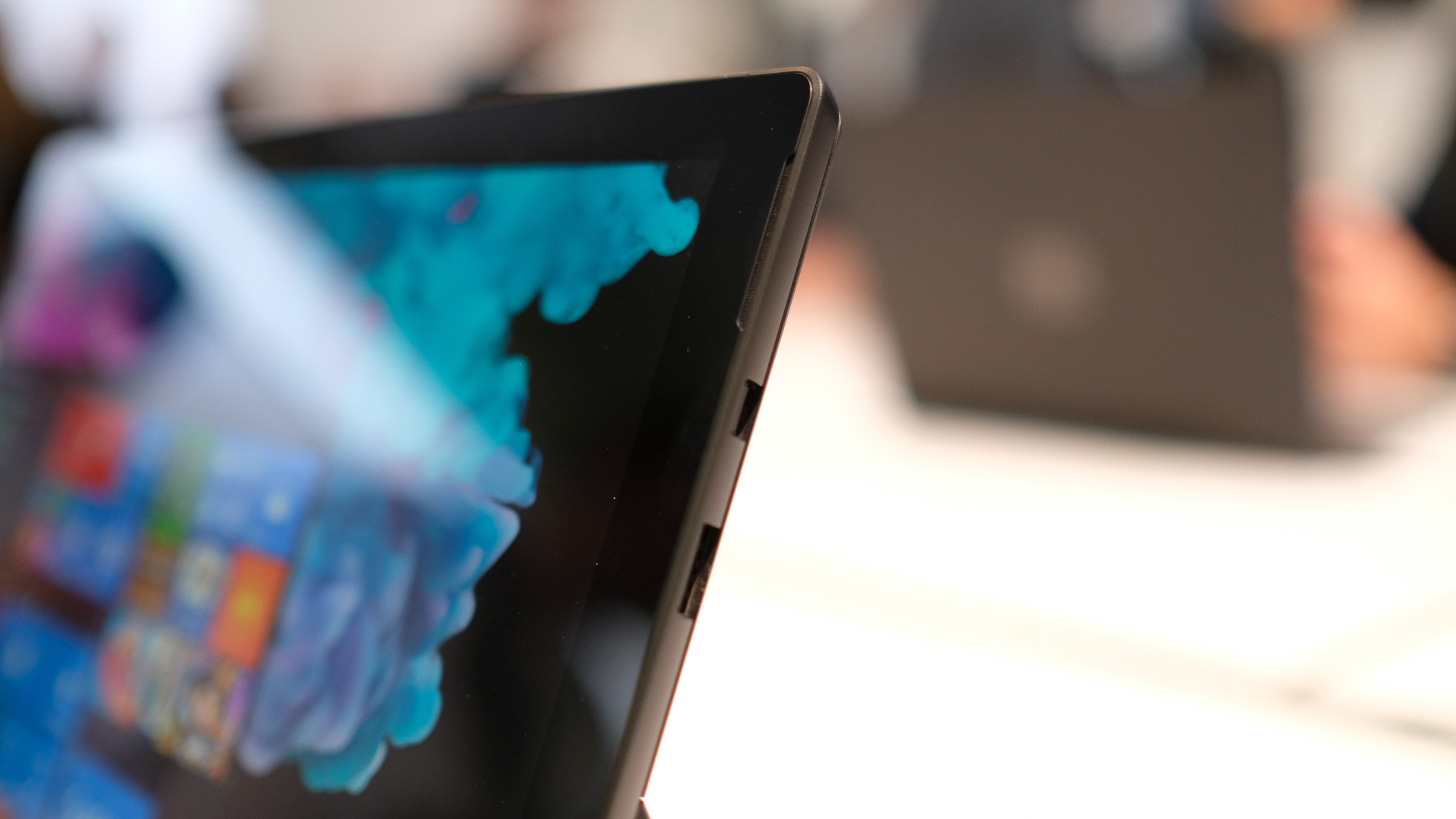Patent shows how Microsoft’s dual-screen laptop might improve its displays
The quest to guarantee consistency between two separate displays continues…

A new patent from Microsoft appears to show that the company is further exploring how to make it so that a dual-screen laptop – like its rumored Surface Centaurus – doesn’t have any inconsistencies between its twin separate displays.
The patent in question, which was recently published by USPTO and spotted by Windows Latest, details a method of using multiple ambient color sensors to ‘generate a single colormetric value’.
In other words, there are sensors present on both sections of the dual-screen device, and using readings from these, the PC will ensure that the graphics on both displays are uniform and consistent under all types of environmental lighting, with no gaps between the screens when the device is laid in a flat configuration.
- HP Omen X 2S is the world's first dual-screen gaming laptop
- Could this concept be the hybrid to follow Surface Centaurus?
- We’ve chosen all the best 2-in-1 laptops of 2019
Put simply, it’s a method for ensuring that a dual-screen device doesn’t produce any odd-looking or inconsistent visuals when operating across two separate displays rather than just the usual one. Because let’s face it, any such flaws would likely seem pretty glaring with a dual-screen laptop.
Powering up the prototype?
Maybe this technology will up the ante in the display stakes for the dual-screen device which is thus far codenamed Centaurus, and has apparently been demonstrated to some staff members internally at Microsoft.
If we’re to believe the grapevine, the fact that the prototype device has been shown off could point to a potential launch of the dual-screen notebook before 2019 is out.
We’ll just have to see, and also bear in mind that any hardware development may also depend on progress on the software front, too: speculation has it that Centaurus is expected to showcase the lightweight version of Windows (whatever that ends up being called – previously it has been referred to as Windows Lite or Lite OS).
Get daily insight, inspiration and deals in your inbox
Sign up for breaking news, reviews, opinion, top tech deals, and more.
- These are the best laptops of 2019
Darren is a freelancer writing news and features for TechRadar (and occasionally T3) across a broad range of computing topics including CPUs, GPUs, various other hardware, VPNs, antivirus and more. He has written about tech for the best part of three decades, and writes books in his spare time (his debut novel - 'I Know What You Did Last Supper' - was published by Hachette UK in 2013).